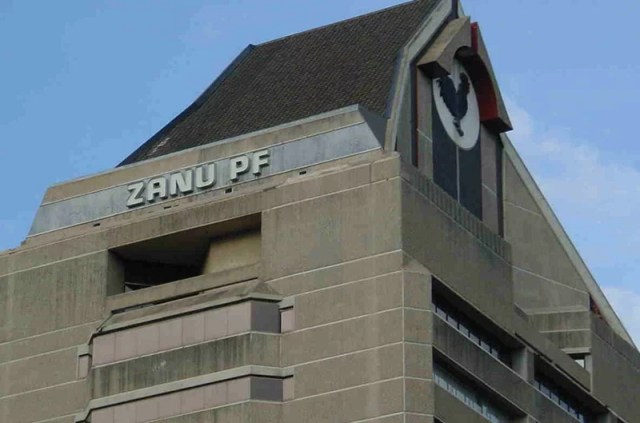HIGH COURT DENIES BAIL TO 73 OPPOSITION ACTIVISTS IN ZIMBABWE

In a big legal decision, the High Court in Harare, Zimbabwe, has decided to keep 73 opposition activists in jail without bail. Among them is Jameson Timba, a well-known former member of parliament and government minister. The court’s decision has raised many questions, especially as only one of the 74 people who were accused was granted bail. This person, named Maxwell Sande, was released due to his age and strict rules that he must follow.
This legal ruling comes at a very important time for Zimbabwe. The government is keeping a close eye on any possible protests as the Southern African Development Community (SADC) summit is set to take place on August 17 in Harare. After protests in Kenya, the government in Zimbabwe is being very cautious, and some say even paranoid. They want to make sure no protests happen before or during the summit.
Justice Munamato Mutevedzi, who was in charge of this appeal, said the lower magistrate’s court did not make any mistakes in deciding to keep the activists in jail. He agreed with the earlier court that had denied bail to the activists, except in the case of Sande, who was released because of his age. Sande is now with his father and must make sure he attends all court dates.
The court said that most of the people in jail are from the areas of Chitungwiza, Epworth, and Hatcliffe, which are suburbs around Harare. Many of them belong to the opposition political party, the CCC (Citizens Coalition for Change). The court also noted that most of the activists are under 40 years old and do not have formal jobs. This paints a picture of young people who are unhappy with the current government and may be willing to protest against it.
These 73 people were first arrested because the government said they were planning an illegal gathering to organize protests against the government. This is why they were denied bail in June 2024. Their appeal to the High Court was mostly denied, showing that the court is very serious about national security and public order, especially at a time when political tensions are high in Zimbabwe.
This decision not only affects the activists and their families, but it also sends a strong message to opposition groups in Zimbabwe. The message is clear: the government is not going to allow protests, and the courts are backing them up. Many people are now wondering if Zimbabwe’s courts are truly independent, or if they are being pressured by the government to make these decisions.
Human rights organizations and people from other countries are likely to pay close attention to this decision. Zimbabwe has a history of limiting political freedoms and human rights, and many will be watching to see how the government and courts continue to handle political opposition. The decision could also have an effect on the upcoming SADC summit. Leaders from other Southern African countries will be looking closely at how Zimbabwe handles political dissent and whether it respects the rights of its citizens.
As Zimbabwe gets ready for this big regional meeting, it faces the difficult challenge of keeping the peace while also respecting political freedoms. Keeping these opposition members in jail without bail makes many people wonder if Zimbabwe’s government is going too far in trying to stop protests. It also makes people question if the courts are really fair and independent or if they are under pressure to support the government.
This legal case shows that Zimbabwe is walking a fine line between keeping order and allowing freedom. Many in the country, and beyond, will be watching closely to see what happens next. With the SADC summit just around the corner, this situation has the potential to impact the region and bring more attention to Zimbabwe’s human rights record.

How can one person get bail and the other 73 remain behind bars for the same issue? It’s clear this is political. This is not law and order. This is fear in action before the SADC summit. Zimbabwe is turning into a prison for anyone who disagrees. Young, unemployed people asking for change are seen as criminals. This isn’t peacekeeping, it’s dictatorship in disguise.
This is no longer about justice, it’s about fear. They are afraid of the youth, afraid of dissent, and afraid of a free Zimbabwe. Keeping 73 people in jail just to prevent protests shows how far this regime has fallen. It’s sad that in 2024 we’re still seeing this kind of political abuse. Courts should protect citizens, not act as weapons of repression. What happened to innocent until proven guilty?